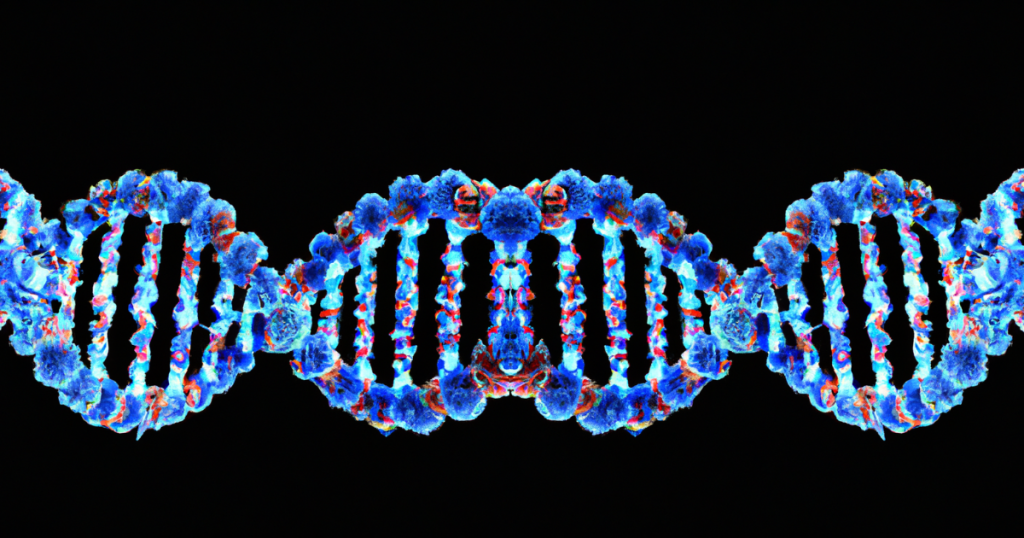Researchers at Chalmers University of Technology have made a ground-breaking discovery in the field of synthetic DNA, using AI to control the cells’ protein production.
This new technology could revolutionize the way we produce vaccines, drugs for severe diseases, and alternative food proteins by making the process faster and significantly cheaper than current methods.
The process of gene expression is fundamental to the function of cells in all living organisms. In simple terms, the genetic code in DNA is transcribed into the molecule messenger RNA (mRNA), which tells the cell’s factory which protein to produce and in what quantities.
Scientists have been working for years to try and control gene expression, as it can play a crucial role in the development of protein-based drugs. The recent mRNA Covid-19 vaccine is a prime example of this, as it instructed the body’s cells to produce the same protein found on the surface of the coronavirus, allowing the body’s immune system to learn to form antibodies against the virus.

A research group at Chalmers, led by Aleksej Zelezniak, Associate Professor of Systems Biology, has taken a significant step forward in understanding and controlling how much of a protein is made from a certain DNA sequence. “First, it was about being able to fully ‘read’ the DNA molecule’s instructions. Now we have succeeded in designing our own DNA that contains the exact instructions to control the quantity of a specific protein,” says Aleksej Zelezniak about the research group’s latest breakthrough. The results of the research can be found by checking out this study.
The new method is similar to how an AI generates faces that look like real people. By learning what a large selection of faces looks like, the AI can then create completely new but natural-looking faces. Similarly, the researchers’ AI has been taught the structure and regulatory code of DNA. The AI then designs synthetic DNA, where it is easy to modify its regulatory information in the desired direction of gene expression. By using AI, researchers can program DNA more efficiently and accurately, what otherwise takes years of research is now shortened to weeks or days.
This breakthrough in synthetic DNA technology could have a significant impact on the future of medicine and gene therapy. With the ability to control the amount of protein produced from a certain DNA sequence, scientists can now create more effective and targeted drugs. The potential for this technology is vast, and researchers are excited to see where it will lead in the coming years.





















